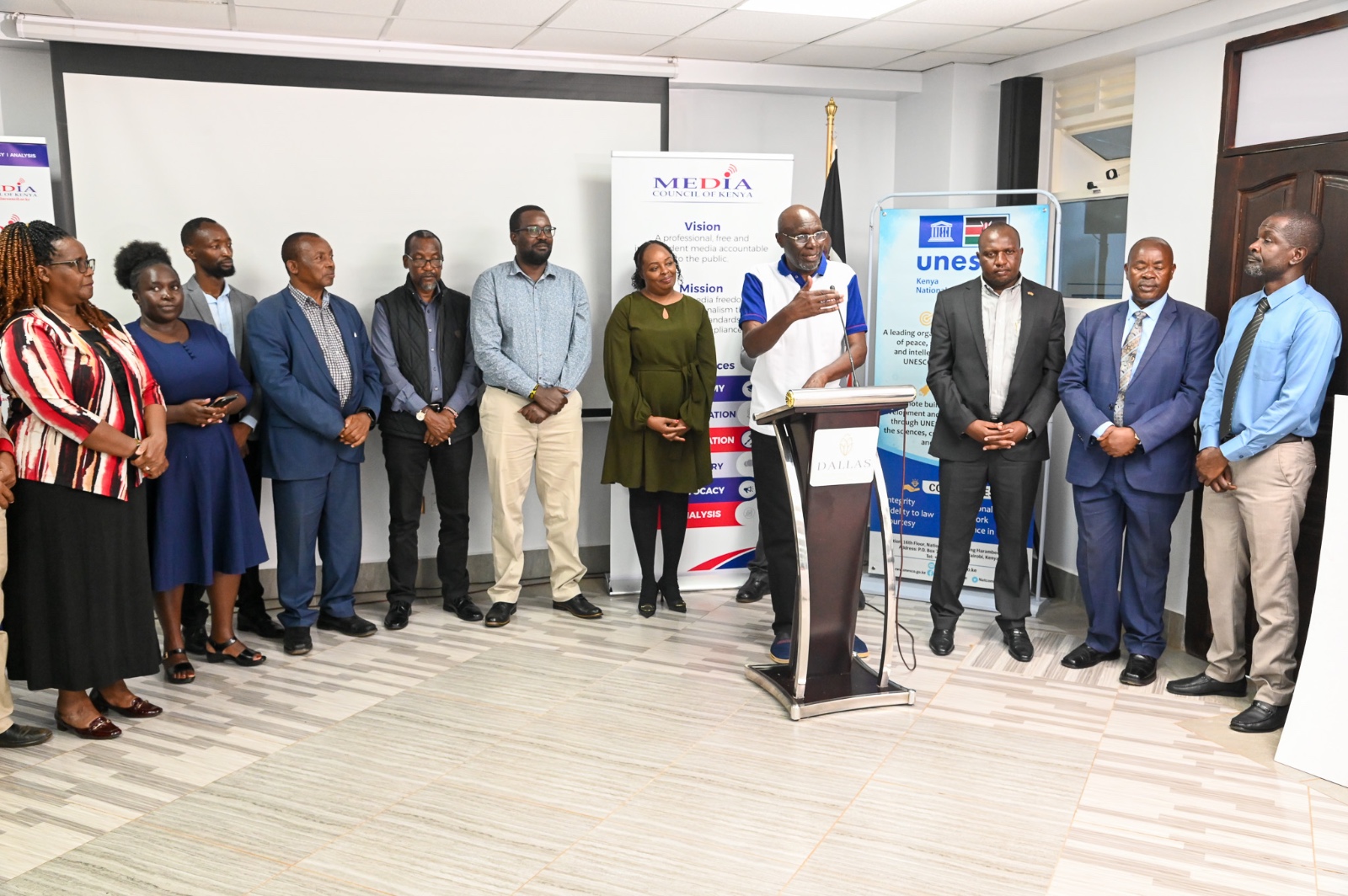
The Media Council of Kenya (MCK) joined the world in commemorating this year’s World Radio Day with calls on radio stations to uphold professionalism and quality content.
This year's event under the theme, a century informing, entertaining and educating, focused on radio's remarkable past, relevant present and promise of a dynamic future.
MCK CEO David Omwoyo who led the celebrations in Kisii County urged journalists to ensure information transmitted through radio is accurate and verified.
He urged radio stations to think about quality over quantity when producing content.
“As we celebrate the quantity, what have we done to the quality of our journalistic work? Engaging in radio requires planning, thorough research and efficient organisation. It is important that we have finer radio personalities and finer journalists doing this”, he said.
He mentioned that this year’s celebration marked 100 years of radio, which he said has grown to become the most used form of media with 78 per cent of Kenyans listening to radio.
He called for professionalism in the radio space during reporting and dissemination of information, he emphasised.
“We have a duty to ensure that information transmitted across these sacred these channels is accurate and informative. It is an ethical challenge that we retain the sanctity of radio space for true and verified information”, said Mr Omwoyo.
The MCK boss called for enhanced capacity building of radio journalists, saying such trainings would expose them to emerging global media trends and professional standards.
He commended veteran journalists from the region for their commitment to nurture upcoming talent, saying their efforts were critical in ensuring quality broadcasting.
Media Owners Association (MOA) Chairperson Agnes Kalekye urged radio stations to embrace technology and unite efforts towards achieving a sustainable media space in the face of the harsh economic realities.
“As we celebrate radio achievements it is important to acknowledge the challenges. In the face of our economic situation, it is important to embrace technology. I call upon the government to support radio sustainability through providing funding support, reducing licence burden and tax and creating sustainable environment”, she said.
She lauded veteran journalists who have dedicated themselves towards making radio what it is today.
Acting Director for Information and Communication Programme at the Kenya National Commission for UNESCO (KNATCOM) Angela Muchai urged stakeholders to ensure that radio continues to drive positive change and sustainable peace.
"Radio remains a trusted source of information to millions across the world by providing content that is relevant to the needs of society. As stakeholders, let’s continue to ensure that radio continues to carry the agenda of positive change and sustainable peace. It is important to prioritise the well-being of journalists, media practitioners and duty bearers to ensure professionalism”, said Ms Muchai.
Deputy Director of Multimedia Services at the Communications Authority (CA) Alfred Ambani enumerated the tremendous steps made by radio in Kenya since the liberalisation of the airwaves in the country.
“The media landscape in Kenya has greatly evolved; we have licenced 212 FM stations for commercial service and 78 community FM stations that span across the country and 13 public FM. Currently 291 radio stations are on air”, he said.
He underscored the enduring place of radio in the society, saying it has immensely transformed lives and enhanced governance.
“People are turning to radio as a familiar source for connection, education and information. Radio broadcasting is one of the most powerful ways of communicating government efforts during crisis”, said Mr Ambani.
Chairperson for the Kenya Correspondents Association (KCA) Araka Matara underscored the important role played by radio in unifying and fostering positive change in the communities.
“Radio remains a source of information and education and can contribute to positive change in the society. Radio has been one of the biggest players in reconciliation and peace through its power to mobilise and reach a wider audience”, he said.
The Kisii Press Club was officially launched at the event that was also addressed by Kisii University Deputy Vice Chancellor for Academics Professor Evans Basweti, Deputy Data Commissioner at the Office of the Data Protection Commissioner (ODPC) Oscar Otieno and Kisii County Commissioner’s representative Juma Edwin Arera.